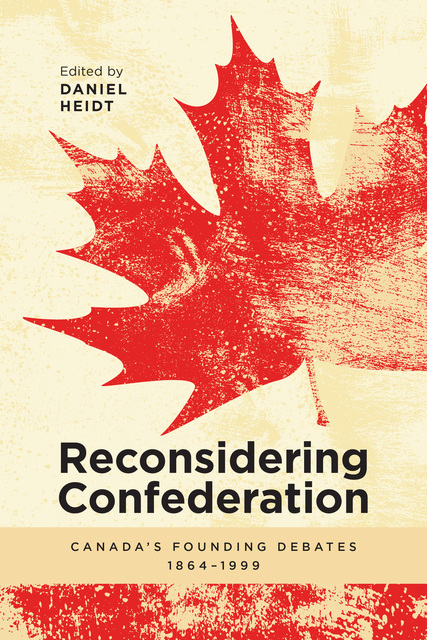THE CONFEDERATION DEBATES
The ideas and concerns that inform a country's founding inspire and complicate politics for generations. In the United States, Americans can learn about their country's founding ideas and debates by consulting any one of several published editions of the Federalist Papers, or thematically organized multi-volume sets of thematically organized papers, debates and pamphlets. For Australia's centenary, the University of Sydney digitized the full texts of that country's key debates from the 1890s to the 1940s.
Until 2017, Canadians did not enjoy these opportunities. Before each province and territory became a part of Canada, their local legislatures (and the House of Commons after 1867) debated the extent, purposes, and principles of political union between 1865 and 1949. The vast majority of these records, however, remained inaccessible to the vast majority of Canadians. Indeed, many of the texts could only be accessed in provincial archives. A few single-volume edited collections existed, but they had to be heavily edited to reduce the cost of printing.
In addition to federal and colonial debates, the British Crown also negotiated a series of Numbered Treaties with Canada's Indigenous Peoples. These texts, and the records of their negotiation, are equally important to Canada's founding yet, as the Truth and Reconciliation Commission explained, "too many Canadians still do not know the history of Indigenous Peoples' contributions to Canada, or understand that by virtue of the historical and modern Treaties negotiated by our government, we are all Treaty people."
Embracing new research technologies, dissemination formats made it possible for The Confederation Debates to finally make all of these debates accessible to everyone. Multiple Universities, the federal government, and the Crabtree foundation came together to digitize, transcribe, and popularize these colonial, federal, and Indigenous texts for the first time in order to increase political awareness of historical grievances and contribute to reconciliation. With the help of hundreds of volunteers from across Canada, the United States, the United Kingdom and China, this project converted these records into searchable texts which can be:
- browsed, searched, and accessed through interactive maps at the confederation debates homepage
- downloaded as an XML Database
- consulted via 366 "quotes of the day" originally posted in both official languages during the year proceeding July 1, 2017
- taught via grade 7/8 and high school mini-units that conform to each province's history and curriculum requirements

